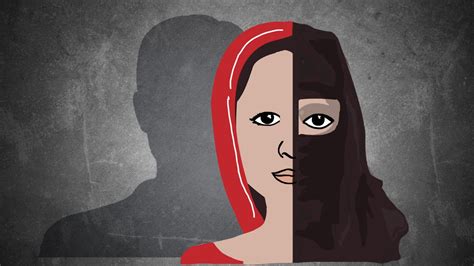On Thursday, April 11, U.N. Human Rights experts issued a call for Pakistan to implement legal reforms in response to the ongoing vulnerability of women and girls from minority faiths to forced marriages and religious conversions. The U.N. special rapporteurs urged Pakistan to increase the legal marriage age for girls to 18 as a measure to prevent exploitation in the predominantly Muslim nation.
They highlighted the severe human rights violations faced by young women and girls of religious minority communities, emphasizing that the persistence of such crimes and the lack of accountability for perpetrators are unacceptable and indefensible. In their statement from Geneva, they expressed deep concern over incidents where forced marriages and religious conversions of minority faith girls, including Christians, are upheld by the judicial system, which often cites religious laws to justify maintaining custody of victims with their abductors instead of returning them to their families.
Furthermore, they noted the frequent evasion of legal consequences by perpetrators, with law enforcement often dismissing these acts as ‘love marriages’.
The experts emphasized that child, early, and forced marriages cannot be justified on religious or cultural grounds. They highlighted that, according to international law, consent is irrelevant when the victim is under 18 years of age. Currently, Sindh is the only province in Pakistan where the legal marriage age for both genders is set at 18 years. In contrast, in Punjab, Khyber Pakhtunkhwa, and Balochistan, the minimum legal age for girls remains 16 years.
The experts asserted that a woman’s autonomy in choosing a spouse and entering into marriage freely is fundamental to her dignity, life, and equality as a human being, and must be rigorously protected and upheld by law. They called for legal measures to nullify, annul, or dissolve marriages that are contracted under coercion, taking into account the well-being of the affected women and girls, and to ensure they have access to justice, remedies, protection, and sufficient support.
Moreover, they reiterated children’s right to freedom of thought, conscience, and religion as enshrined in Article 14 of the Convention on the Rights of the Child, stating that any change of religion or belief must always be voluntary, free from coercion, and undue influence.
The experts urged Pakistani authorities to enact and rigorously enforce legislation ensuring that marriages are entered into solely with the free and full consent of the individuals involved and advocated for raising the minimum age for marriage to 18, inclusive of females. They emphasized that women and girls, particularly those from Christian and Hindu communities, must be treated equitably without discrimination.
They detailed incidents of forced religious conversions, including the case of Mishal Rasheed, who was forcibly abducted at gunpoint from her residence in Punjab Province while preparing for school in 2022. Mishal was sexually assaulted, coerced into converting to Islam, and compelled to marry her abductor. Additionally, they referenced a recent incident on March 13, where a 13-year-old Christian girl was allegedly kidnapped, forcibly converted to Islam, and married to her captor after her age was falsified as 18 on a marriage certificate.
The U.N. experts highlighted the particular susceptibility of Christian and Hindu girls to forced religious conversion, abduction, trafficking, child, early and forced marriage, domestic servitude, and sexual violence.
The team of experts included Special Rapporteur on Freedom of Religion or Belief Nazila Ghanea, Special Rapporteur on Minority Issues Nicolas Levrat, Special Rapporteur on Human Trafficking Siobhan Mullally, and Special Rapporteur on Contemporary Forms of Slavery Tomoya Obokata. Dorothy Estrada Tanck, chair of the working group on discrimination against women and girls, along with members Claudia Flores, Ivana Krstic, Haina Lu, and Laura Nyirinkindi, also contributed to the statements.
The Special Rapporteurs are integral to the Special Procedures of the U.N. Human Rights Council. The Special Procedures represent the largest body of independent experts within the U.N. Human Rights system and serve as the council’s independent fact-finding and monitoring mechanisms that address either specific country situations or thematic global issues.
The U.N. experts called on Pakistan to prosecute offenders, enforce existing legal safeguards against child, early, and forced marriage, abduction, and trafficking of minority girls, and fulfill the country’s international human rights commitments.
According to a report released in November 2021 by the All Party Parliamentary Group on Freedom of Religion and Belief, approximately 1,000 girls from various religious minorities in Pakistan had been abducted and subjected to forced conversions.
Tehmina Arora, the Asia advocacy director for Alliance Defending Freedom International, advocated for a uniform marriage age across Pakistan and a vigilant judiciary to safeguard the rights and freedoms of young girls throughout the nation, with a particular focus on the protection of girls from vulnerable Christian communities.
“Every year, thousands of minor girls in Pakistan are forcibly converted and married to their abductors,” stated Arora. “No individual should endure the atrocities of abduction, forced marriage, and forced conversion.”
Pakistan has faced international criticism for its inconsistent commitment to protecting religious minorities and the government’s reluctance to condemn extremism unequivocally. Despite these challenges, the persecution of Christians, Hindus, and Ahmadis—some of the most vulnerable and oppressed groups in the country—continues unabated.
Efforts to pass legislation against forced conversions and to amend child marriage laws have been made, particularly in provincial assemblies. However, liberal Pakistani legislators have struggled to enact these laws due to the complex interconnection between these issues, complicating legislative efforts further.
